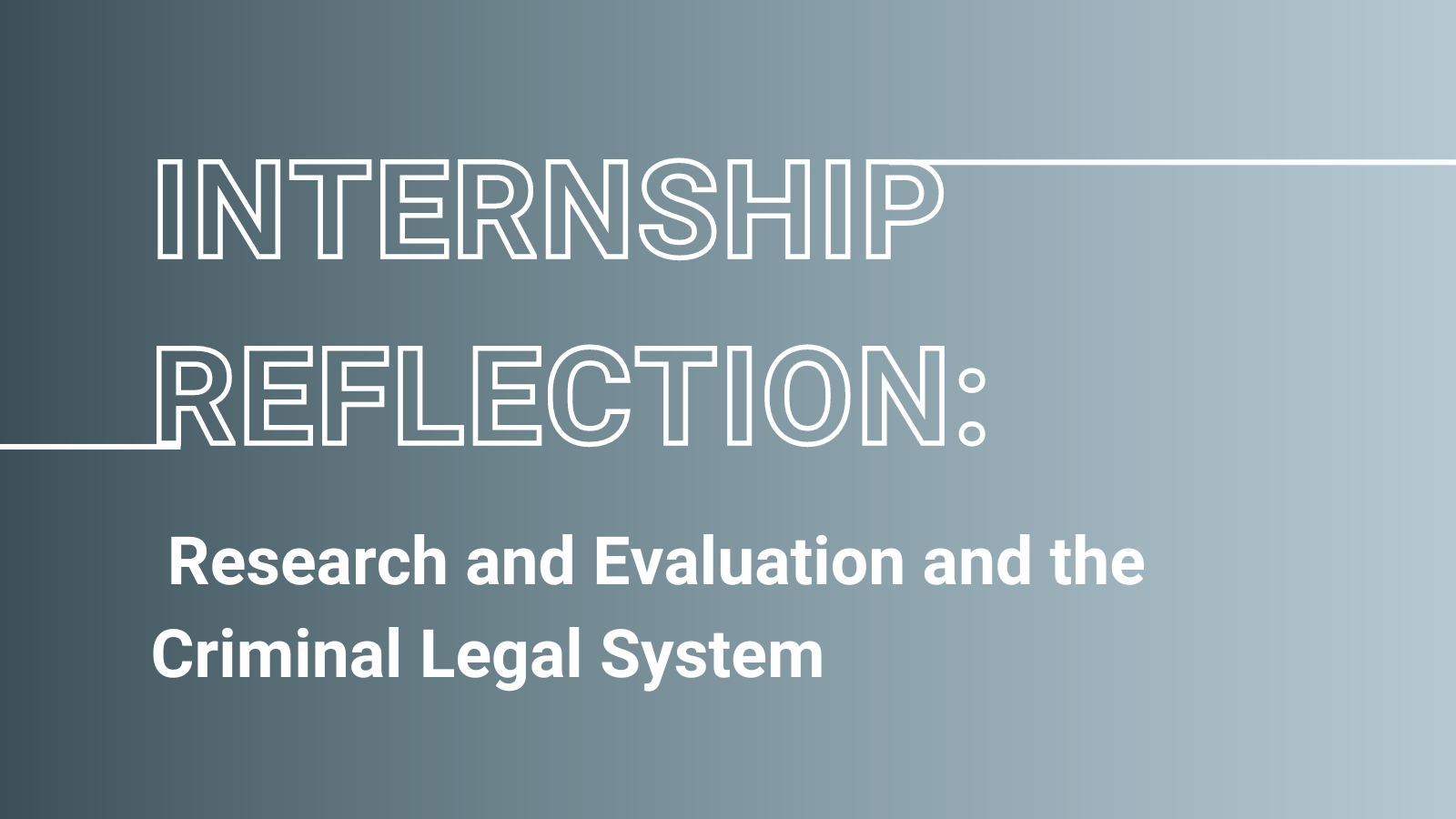My journey with Policy Research Associates, Inc. (PRA), began during my tenure as a database coordinator with the Texas Judicial Commission on Mental Health (JCMH). It was there that I first encountered PRA’s Sequential Intercept Model, sparking my interest in their commitment to enhancing behavioral health outcomes and addressing disparities in marginalized communities. Intrigued by their impactful work, I joined PRA in September 2022 as a Research Intern in the Research and Evaluation Area.
Experiences in the Research and Evaluation Area
In the Research and Evaluation Area, I delved into diverse projects. My first independent project was the creation of an internal database as part of PRA’s strategic goal to support PRA’s leadership transition. This endeavor built on my previous technical skills in data management and database development and also allowed me to witness the profound impact of PRA’s 35 years of work. Following the creation of this database, I worked on three projects in this area. The first sought to examine strategies for reducing pretrial detention judgments. The second project involved a comprehensive state-wide evaluation of felony incompetent to stand trial diversion programs. The third project focused on a critical examination of measures and measurement of well-being for youth involved with the juvenile justice system.
Across these projects, I conducted in-depth literature reviews, synthesized patterns of findings, and identified crucial gaps in the existing literature. In addition, I actively participated in the practical aspects of research involving data cleaning, analysis, and visualization. Leveraging my statistical skills in R, I synthesized complex datasets and presented refined insights to research and evaluation partners. This experience not only strengthened my technical skills but also honed my ability to articulate clear learning goals, execute tasks with efficiency and independence, and collaborate with both junior and senior research staff. Each project became a canvas for me to contribute meaningfully to overarching goals, further solidifying my commitment to bridging the gap between research and actionable change.
Experiences in the Criminal Legal System Area
During my semester in the Criminal Legal System (CLS) area at PRA, I leveraged my research background and previous work with JCMH. I collaborated with fellow staff members to learn a new qualitative coding software program: Dedoose. I utilized this tool to code over 50 jurisdiction-specific reports stemming from PRA’s Sequential Intercept Model (SIM) Mapping workshops as a part of the MacArthur Foundation’s Safety and Justice Challenge (SJC). These workshops were delivered by PRA between 2017 and 2023 and centered around the SIM—a conceptual model shaping community-based responses to individuals with mental and substance use disorders in the criminal legal system. The coding of these reports made a substantial contribution toward future analyses of SIM Mapping Workshops. In addition to this independent coding project, I actively engaged in team meetings and quarterly meetings within the CLS area. These collaborative sessions enriched my understanding of the diverse projects within the CLS area.
Reflecting on the Internships
Reflecting on my time at PRA, I truly appreciate the numerous networking and collaborative opportunities that PRA offered throughout my time here. I learned to navigate the complex nature of addressing issues in the criminal legal system. My PRA experience reinforced the importance of interdisciplinary collaboration between the fields of behavioral health and criminal justice. This internship at PRA also aligns with my doctoral studies in psychology, focusing on the intersection of law and psychology. I believe that the skills I’ve acquired, ranging from quantitative analysis using R to qualitative coding with Dedoose, are invaluable assets to my future career trajectory as a researcher. Additionally, the exposure to PRA’s commitment to diversity, equity, and inclusion aligns with my aspiration to incorporate these principles into my future research endeavors. My internship journey at PRA has been transformative, providing me with practical skills, insights, and a deeper understanding of the complex interplay between law and psychology. As I conclude my internship at PRA, I am grateful for the mentorship I received from various individuals throughout my time here. Overall, my experiences at PRA strengthened my commitment to impactful research and my confidence in navigating the complex landscape of the criminal legal system.


